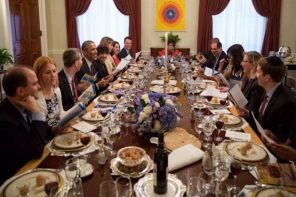A couple of weeks ago The New York Times reported that the Pope has reservations about interfaith dialogue. There are few different ways to understand this pronouncement. Pope Benedict, as both Pope and Cardinal Ratzinger, has never seemed inclined to interfaith dialogue, or interfaith understanding. My own superficial reading of his work indicates a reluctant support of Vatican II.
On one level, the Pope is forced into participating in interfaith dialogue, particularly with Muslims, after quoting an author saying Islam is “evil and inhuman.” Shortly after this event he was confronted with a letter, A Common Word, offering a chance to help prevent inter-religious conflict, which he could not refuse. Traditionally, however, the Pope has not been active player in interfaith dialogue; his role has been more akin to a head of state when dealing with other traditions. For example, in medieval interactions between the Ottoman Sultan and the Vatican, the Pope was a head of state who negotiated treaties, sending emissaries to deal with theological issues. In many respects, the Pope’s letter can be seen as a return to his traditional role, of guiding his flock.
For proselytizing faiths, interfaith dialogue cannot happen without putting one’s faith in parentheses; the urge to convert must be contained. I think it is important to acknowledge that and to understand the Pope’s honesty in that regard. However, theological dialogue, in its basic form, “to talk about God,” is an important part of interfaith work. This type of interaction happens at the quotidian level, when we meet some other than “us.” It happens at the level of religious leaders and theologians. It is a way to understand God, that which cannot be understood, better. Historically, this interaction has served to strengthen understandings of faith, rather than weaken them. Figures like Aquinas, Ibn Rushd, and Rambam, come out of this type of engagement.
There is, realistically, a limit to this type of work. It is a necessary and elite type of discourse, with no immediate “on the ground” impact. Here, the Pope is right, we need to understand how our religious choices impact the world in which we live. I do not read the Pope’s statement as setting back interfaith dialogue, but as a challenge to take it more seriously. We are not aiming for a panglossian single-religion, but to understand God more fully.
What is it that makes each religion unique and what does that mean for other faiths? How do we create a more just society from religious difference? I think the Pope may be on to something, and I think someone of his stature can push the issue in a more nuanced way. I hope that his letter supporting a book is heeded and I await a more thought out and developed statement from his office.



